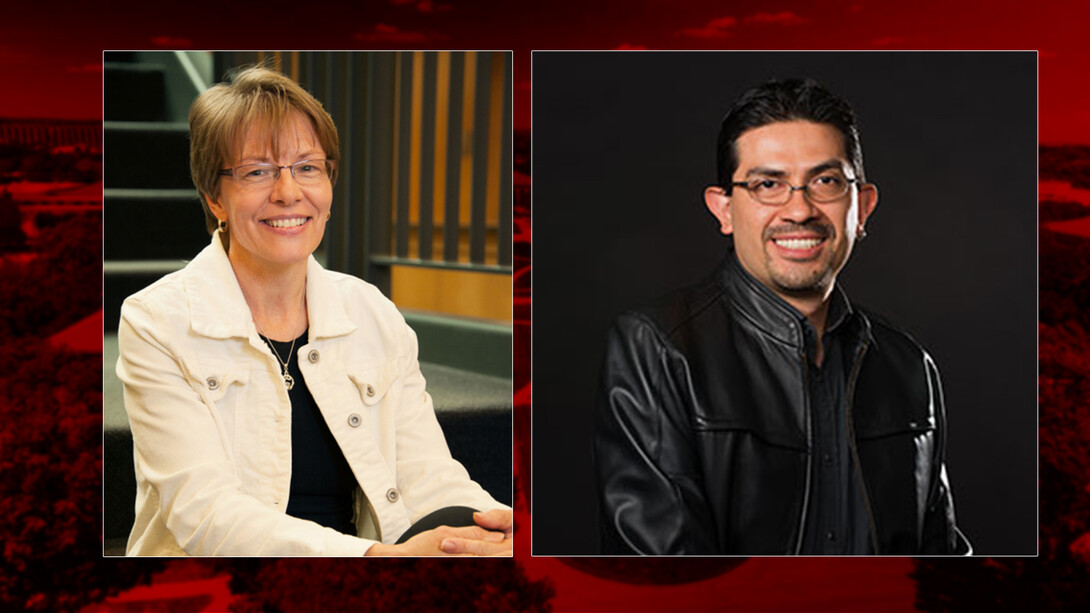
Lincoln, Neb. —The University of Nebraska–Lincoln has established a two-person team of ombuds to provide confidential, independent assistance to help Nebraska faculty resolve work-related problems.
The ombuds use informal and impartial processes, including helping faculty to understand university polices and promoting constructive communication during conflict. When possible, ombuds work to resolve matters through dispute resolution options that can address issues more quickly and efficiently than through formal procedures.
The ombuds do not receive and handle formal complaints, but they can direct faculty to the proper offices for such situations. Through their work, the ombuds can detect patterns in UNL’s institutional operations. As a result, the ombuds can inform administrative leaders about the need for overall issues or inefficiencies to be addressed through review and possible changes in policy or management approach.
The UNL ombuds are Lisa PytlikZillig, research associate professor with the University of Nebraska Public Policy Center, and Rodrigo Franco Cruz, professor in the School of Veterinary Medicine and Biomedical Sciences. Faculty members can contact them at ombuds@unl.edu.
“Faculty who use the ombuds services have expressed appreciation for the chance to consider options to address their concerns confidentially, as well as the assistance that ombuds can provide in exploring or facilitating some options,” PytlikZillig and Cruz said in a joint statement. “Ombuds are listed as confidential resources on UNL’s website, and the office is designed to be a place where faculty can discuss their concerns and issues without worrying that their case will be reported or discussed elsewhere without their permission.”
The ombuds are impartial helpers, neither advocating for an individual faculty member or group, nor representing university management. Ombuds pursue an “omnipartial” approach that promotes respectful dialogue, fair practices and mutual understanding for all parties involved in a situation.
PytlikZillig and Cruz are members of the International Ombuds Association, whose professional standards of practice emphasize confidentiality, impartiality, informality and independence.
“Formal processes are often lengthy and cumbersome, and this can be prevented if resolution can be resolved informally,” PytlikZillig and Cruz noted. “Having the ombuds office increases the options available to faculty.”
The ombuds do not report on the specifics of cases. Instead, they “only report patterns they are seeing across campus or information about how the office is performing — for example, the number of cases or commonly occurring issues,” PytlikZillig and Cruz said. “The independence of our office helps protect confidentiality by removing reporting lines.”
The ombuds can direct faculty to options and resources they may wish to explore on their own and assist the faculty in such efforts. Ombuds can assist faculty members in finding out about specific university policies pertaining to an issue, for example.
A central focus is facilitating clear, constructive communication, especially in the context of workplace conflict. “Some office visitors appreciate being able to talk through strategies for communicating clearly and productively with others,” PytlikZillig and Cruz said. “Then the visitor may choose to have the conversations on their own.”
If the faculty member chooses, the ombuds can also help arrange, structure and be present for those conversations. “The decision-making power for how to move forward on an issue is always in the hands of the faculty member consulting with the ombuds,” PytlikZillig and Cruz said.
As a result, they said, “the ombuds provide resources and options but do not make decisions for the visitors to the office. The ombuds empower the faculty to make decisions and take action.”
A webpage for UNL’s Office of Executive Vice Chancellor provides details on the ombuds’ role. Because UNL ombuds are collateral ombuds — that is, they also serve university functions other than their ombuds role — having two ombuds makes it easier to avoid potential conflicts of interest. Faculty may contact the ombuds office generally or, based on preferences or potential conflicts of interest, faculty may specify one ombuds with whom they would like to speak.







